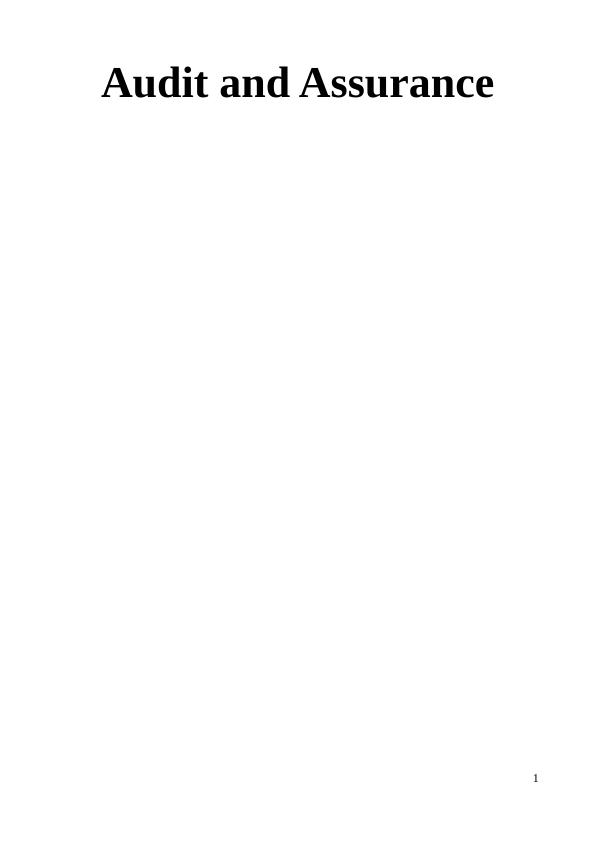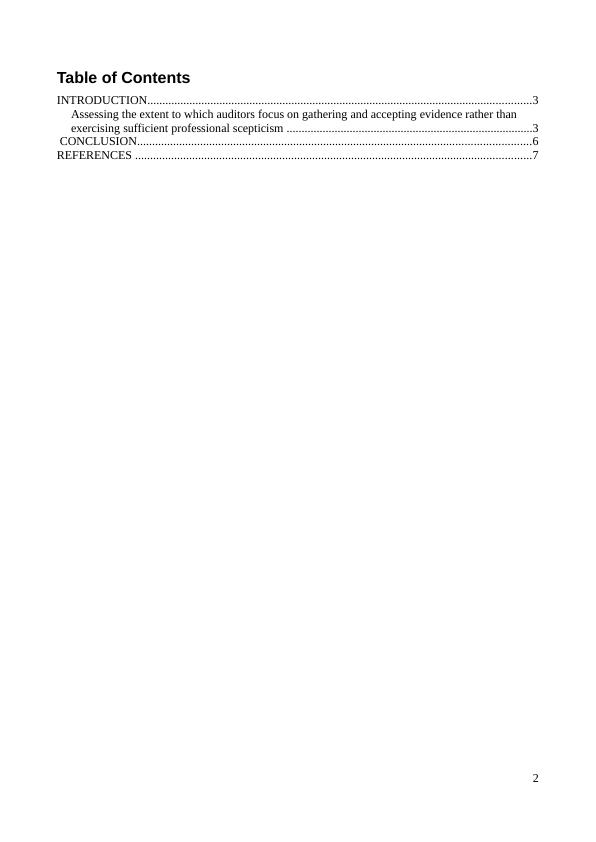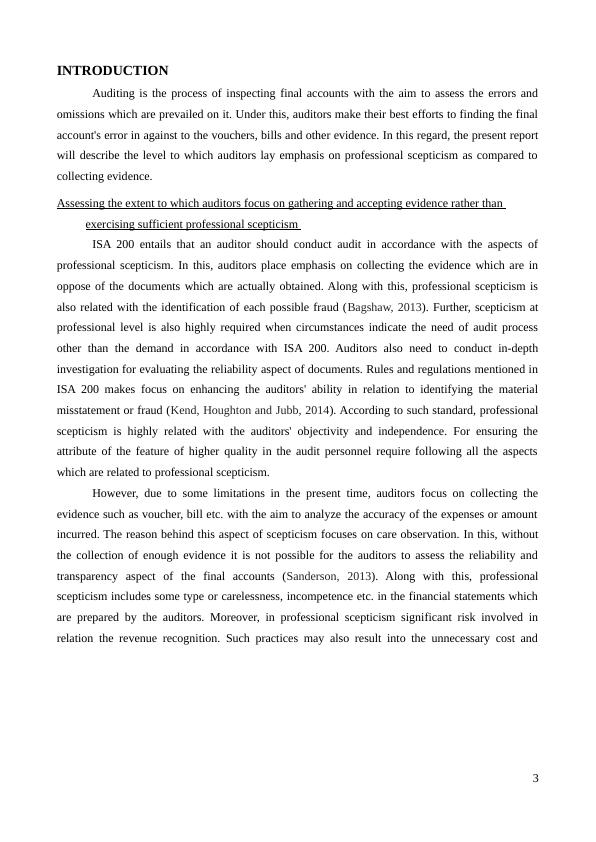Process of Audit and Assurance
Added on 2020-02-03
8 Pages2316 Words55 Views
Audit and Assurance1

Table of ContentsINTRODUCTION................................................................................................................................3Assessing the extent to which auditors focus on gathering and accepting evidence rather than exercising sufficient professional scepticism ..................................................................................3CONCLUSION...................................................................................................................................6REFERENCES ....................................................................................................................................72

INTRODUCTIONAuditing is the process of inspecting final accounts with the aim to assess the errors andomissions which are prevailed on it. Under this, auditors make their best efforts to finding the finalaccount's error in against to the vouchers, bills and other evidence. In this regard, the present reportwill describe the level to which auditors lay emphasis on professional scepticism as compared tocollecting evidence. Assessing the extent to which auditors focus on gathering and accepting evidence rather than exercising sufficient professional scepticism ISA 200 entails that an auditor should conduct audit in accordance with the aspects ofprofessional scepticism. In this, auditors place emphasis on collecting the evidence which are inoppose of the documents which are actually obtained. Along with this, professional scepticism isalso related with the identification of each possible fraud (Bagshaw, 2013). Further, scepticism atprofessional level is also highly required when circumstances indicate the need of audit processother than the demand in accordance with ISA 200. Auditors also need to conduct in-depthinvestigation for evaluating the reliability aspect of documents. Rules and regulations mentioned inISA 200 makes focus on enhancing the auditors' ability in relation to identifying the materialmisstatement or fraud (Kend, Houghton and Jubb, 2014). According to such standard, professionalscepticism is highly related with the auditors' objectivity and independence. For ensuring theattribute of the feature of higher quality in the audit personnel require following all the aspectswhich are related to professional scepticism. However, due to some limitations in the present time, auditors focus on collecting theevidence such as voucher, bill etc. with the aim to analyze the accuracy of the expenses or amountincurred. The reason behind this aspect of scepticism focuses on care observation. In this, withoutthe collection of enough evidence it is not possible for the auditors to assess the reliability andtransparency aspect of the final accounts (Sanderson, 2013). Along with this, professionalscepticism includes some type or carelessness, incompetence etc. in the financial statements whichare prepared by the auditors. Moreover, in professional scepticism significant risk involved inrelation the revenue recognition. Such practices may also result into the unnecessary cost and3

End of preview
Want to access all the pages? Upload your documents or become a member.
Related Documents
Assignment - Accounting and Financial Managementlg...
|12
|3114
|16
Analysis of Potential Threats to Independence And Objectivitylg...
|9
|2013
|14
Basic Understanding of Key Auditing Conceptslg...
|6
|1481
|400
The prevalence of any eventslg...
|16
|1770
|14
Auditing and Assurancelg...
|8
|1301
|347
Auditing Processes in an Organisationlg...
|5
|685
|136
